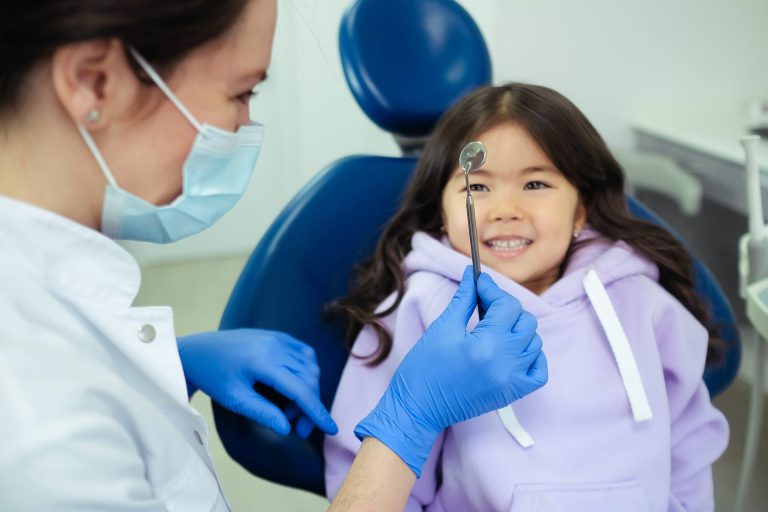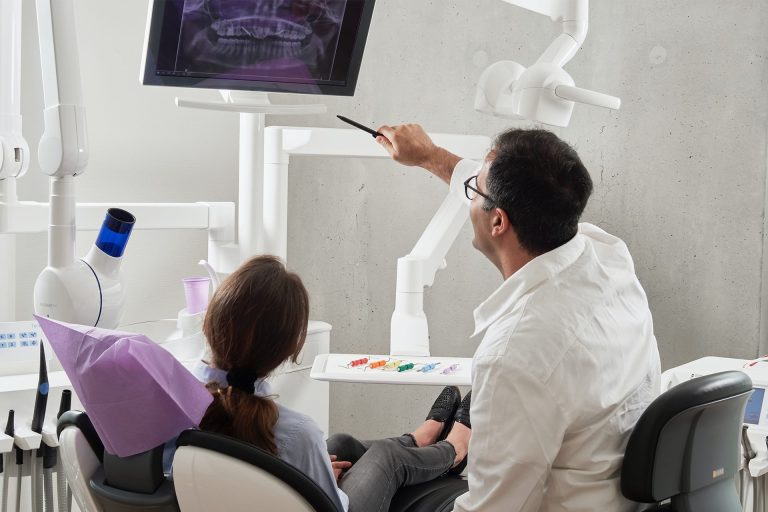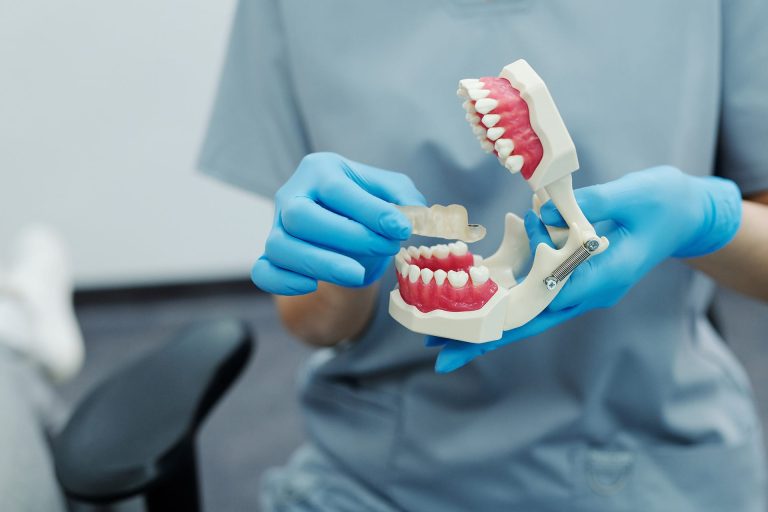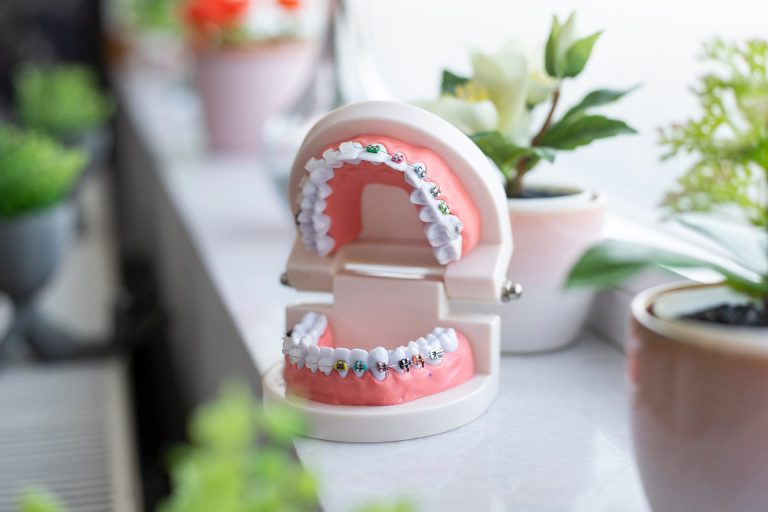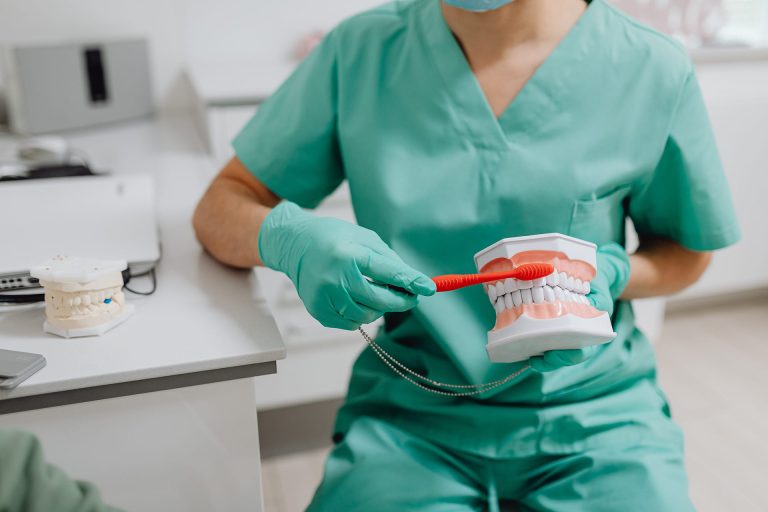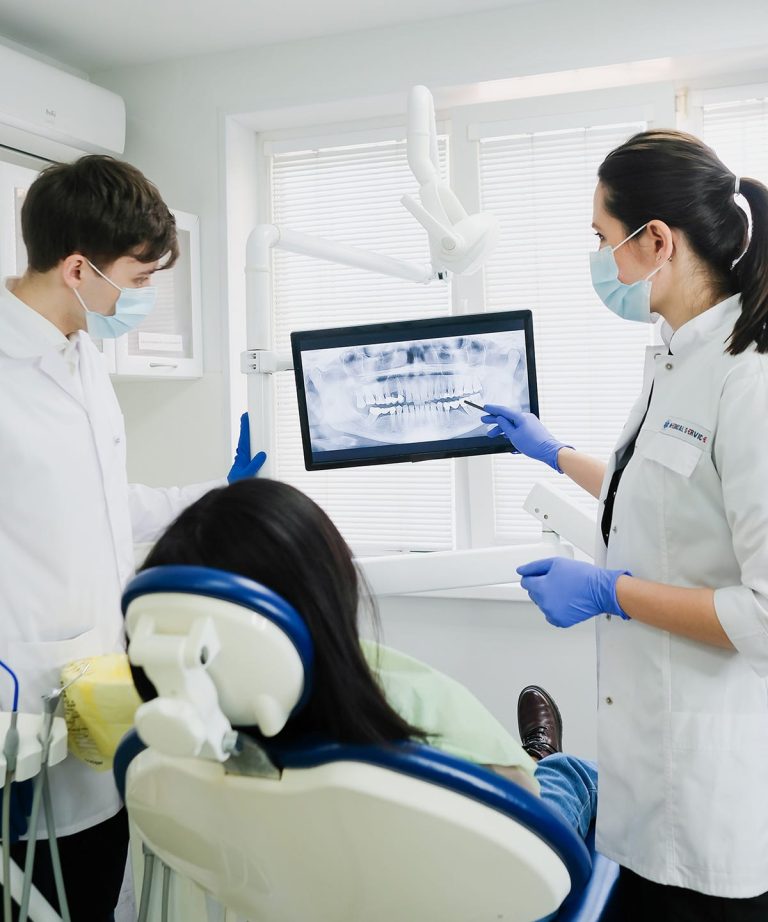Introduction: You know that feeling of walking into a dental clinic, the unmistakable scent of antiseptic, the soothing hum of the dental drill in the background, and that palpable sense of anticipation? Well, that’s the prelude to your dental check-up, an essential part of your health routine that can be a tad bit daunting but is always full of surprises.
Snippet: At a dental check-up, you can anticipate a comprehensive oral examination, including X-rays to detect hidden issues, professional cleaning to remove plaque and tartar, and a discussion about your oral health. Your dentist will provide personalized advice to maintain your dental hygiene.
H2: Understanding the Importance of Regular Dental Check-Ups
Just like every machine requires maintenance to function optimally, your body, particularly your oral cavity, needs regular check-ups to maintain its health. Regular dental check-ups are essential, and their importance cannot be overstated. These routine visits not only help in the early detection of oral diseases but also ensure that your teeth stay healthy, clean, and strong.
H3: Role of Dental Health in Overall Wellbeing
It’s easy to underestimate the significance of oral health, but the truth is, your dental health plays a pivotal role in your overall wellbeing. Poor oral health has been linked to various medical complexities, including heart disease, diabetes, and even stroke.
When bacteria from your mouth enter your bloodstream, it can lead to inflammatory reactions elsewhere in the body. For instance, gum disease has been linked to rheumatoid arthritis, a debilitating autoimmune disorder that affects the joints.
However, the connection between oral health and overall wellbeing isn’t solely about disease prevention. A healthy mouth enables you to eat, speak, and socialize without discomfort or embarrassment, contributing to a better quality of life and mental wellbeing.
H3: Prevention: The Key to Maintaining Oral Health
Prevention of oral diseases is the key to maintaining oral health. This involves regular dental check-ups, good oral hygiene practices, and a balanced diet.
Regular dental check-ups allow your dentist to detect problems at an early stage, making treatment more effective and less invasive. They also provide an opportunity for professional cleaning, which is crucial in preventing gum disease and cavities.
Good oral hygiene practices, such as brushing twice a day with fluoride toothpaste and flossing daily, are also vital in preventing oral diseases. These practices help to remove plaque, a sticky film of bacteria that forms on your teeth and can lead to gum disease and cavities.
A balanced diet, rich in fruits, vegetables, lean proteins, and low in sugar can also contribute to good oral health. Certain nutrients, such as calcium and vitamin C, are particularly beneficial for your teeth and gums.
Overall, understanding the importance of regular dental check-ups and the role of dental health in your overall wellbeing is crucial. With a proactive approach to prevention, you can maintain your oral health and contribute to your overall wellbeing.
H2: Preparing for Your Dental Check-Up
Regular dental check-ups are integral to maintaining optimal oral health. However, to make the most out of these appointments, it’s crucial to come prepared. Preparing for your dental check-up involves knowing what to bring and what questions to ask.
H3: What to Bring to Your Appointment
Arriving at your dental appointment with the necessary documents and information will ensure a smooth and efficient visit. Here’s what you need to bring.
H4: Identification and Insurance Information
Firstly, bring your identification and insurance information. Your identification verifies your identity, and your insurance information allows your dental office to process your claim. Ensure your insurance card has up-to-date information to prevent any administrative issues.
H4: List of Medications
Secondly, bring a list of any medications you’re currently taking, including over-the-counter drugs, supplements, and prescriptions. These can affect your oral health and the dental treatments you receive. A comprehensive list will enable your dentist to provide personalized care based on your specific needs.
H4: Details of Your Medical History
Lastly, be prepared to provide details of your medical history. This includes past surgeries, chronic illnesses, allergies, and any previous dental issues. This information is crucial in planning your dental care, as certain conditions may affect treatment options.
H3: Questions to Ask Your Dentist
Coming prepared with questions for your dentist can help you better understand your oral health and how to improve it. Here are some important inquiries you might consider.
H4: Inquiries on Oral Hygiene
Understanding proper oral hygiene is the first step towards preventing dental issues. Ask your dentist about the best brushing and flossing techniques, the most effective mouthwash, or the ideal toothbrush for your specific needs.
H4: Queries about Potential Dental Problems
If you have concerns about potential dental problems, don’t hesitate to raise them. Whether it’s sensitivity, toothache, or bleeding gums, getting clarification from your dentist can help you address these problems early.
Overall, preparing for your dental check-up involves bringing the necessary documents and having a list of questions ready for your dentist. This preparation allows for a more productive appointment, ensuring you receive the best possible care for your oral health. Remember, your dentist is a valuable resource; make the most of your appointment by coming prepared.
H2: The Dental Check-Up Process
Understanding the dental check-up process can help alleviate any anxiety or uncertainty you may have about your visit. This comprehensive guide will outline each step of the process, from reviewing your dental history to discussing the findings and your treatment plan.
H3: Dental History Review
The dental history review is an essential part of your dental check-up. This involves a thorough review of your past dental records, including any procedures you’ve had, dental diseases you’ve been diagnosed with, and your oral hygiene habits. It also includes a review of your medical history as certain systemic diseases can impact your oral health. This review enables your dentist to fully understand your dental health trajectory and make informed decisions about your treatment plan.
H3: Physical Examination of Mouth
Following the dental history review, a physical examination of your mouth will take place.
H4: Teeth Examination
During the teeth examination, the dentist will examine each tooth for signs of decay, damage, or wear. Using a dental mirror and probe, they will check for cavities, fractures, and other abnormalities that could compromise your oral health.
H4: Gum Examination
The gum examination involves assessing the health of your gums. Your dentist will check for signs of gum disease, such as redness, swelling, and bleeding. They will also measure the depth of your gum pockets, an important indicator of gum health.
H4: Checking for Signs of Oral Cancer
Your dentist will also perform an oral cancer screening during your check-up. This involves checking your mouth, throat, and neck for any unusual lumps, sores, or discoloured patches. Early detection of oral cancer can significantly improve the prognosis.
H3: Cleaning and Polishing
After the physical examination, your teeth will be cleaned and polished.
H4: Plaque and Tartar Removal
Plaque and tartar build-up can lead to gum disease and tooth decay. Your dentist, or a dental hygienist, will use specialized tools to gently remove these deposits from your teeth.
H4: Teeth Polishing
Following the removal of plaque and tartar, your teeth will be polished. This process removes surface stains and makes your teeth smooth and shiny, helping to prevent plaque from accumulating again.
H3: X-Rays
At some check-ups, you may also need dental X-rays. These images provide a detailed view of your teeth and jawbone, helping your dentist detect any hidden problems that can’t be seen during the physical examination.
H3: Discussion of Findings and Treatment Plan
Finally, your dentist will discuss the findings of the check-up with you. If any issues were detected, they will outline a treatment plan tailored to your needs. This could involve further diagnostic tests, restorative procedures, or a referral to a specialist.
Overall, the dental check-up process is comprehensive and designed to ensure your optimal oral health. By understanding each step, you can approach your next dental visit with confidence and peace of mind.
H2: Post Check-Up: What Comes Next?
After your dental check-up, it’s crucial to understand what steps to take next. The main areas to focus on are understanding your treatment plan, scheduling follow-up appointments, and maintaining oral hygiene at home.
H3: Understanding Your Treatment Plan
Your dentist will provide a comprehensive treatment plan if there are any dental issues detected during the check-up. This plan typically covers the type of treatment required, the number of sessions needed, and the overall cost. If your treatment plan appears labyrinthine, don’t hesitate to ask your dentist for clarification. Break the plan down into smaller, manageable sections to better understand it. If any part of the plan seems abstruse, get more information until you’re comfortable with everything that’s being proposed. It’s important that you understand and are confident with the proposed treatment strategy.
H3: Scheduling Follow-up Appointments
Next, it’s time to schedule your follow-up appointments. These are essential for tracking your treatment progress and making any necessary adjustments. Regular appointments also ensure that any emerging issues are caught early, which can save time, money, and discomfort in the long run. Be proactive in scheduling these appointments – your oral health is a paramount concern and it’s imperative to prioritize these visits. Consider setting reminders or using a digital calendar to ensure you don’t overlook any scheduled visit.
H3: Maintaining Oral Hygiene at Home
Aside from professional care, maintaining oral hygiene at home is equally important. Regular brushing and flossing are the cornerstones of good oral health, but don’t neglect other aspects of your regimen. Consider using an antimicrobial mouthwash to supplement your brushing and flossing. If you have been prescribed specific dental products, ensure that you use them as directed.
Remember, your diet also plays a significant role in oral health. Consuming a balanced diet with limited sugary and acidic foods can help to prevent tooth decay and gum disease. Incorporate lots of fibrous fruits and vegetables, as they can naturally clean your teeth while eating.
Overall, the steps you take after your dental check-up are critical in ensuring your oral health. By understanding your treatment plan, sticking to your follow-up appointments and maintaining oral hygiene at home, you can keep your teeth and gums in optimal condition. Your oral health is a vital part of your overall wellbeing, so make sure you give it the attention and care it deserves.
H2: Dealing with Dental Anxiety
Dental anxiety, a prevalent phenomenon, often hinders optimal oral health. But, fortunately, it is manageable. By understanding its roots, recognizing the signs, and employing effective strategies, you can successfully navigate through this challenge.
H3: Recognizing Dental Anxiety
Dental anxiety can manifest in numerous ways. Sometimes, you may experience a sense of dread or heightened nervousness about upcoming dental appointments. You may also develop insomnia the night before the dental visit, or exhibit an exaggerated worry about the potential pain or discomfort associated with the procedure.
Understanding these symptoms is the first step towards tackling dental anxiety. It will empower you to acknowledge your feelings and subsequently seek the right help.
H3: Strategies for Managing Dental Anxiety
The strategies for managing dental anxiety are as varied as the symptoms themselves. They range from simple relaxation techniques to open communication with your dentist.
H4: Communication with Your Dentist
A pivotal component in managing dental anxiety is effective communication with your dentist. Your dentist is your ally in maintaining oral health. By discussing your fears and concerns, you enable them to tailor their approach to your comfort level. They may explain the procedure in detail to alleviate your fears or adjust their treatment plan to minimize discomfort.
H4: Relaxation Techniques
Relaxation techniques like deep breathing exercises, progressive muscle relaxation, or guided imagery can significantly reduce dental anxiety. These techniques divert your attention from the anticipated discomfort to a calming activity, thereby lowering anxiety levels.
For instance, while waiting for your turn, try deep breathing exercises. Inhale slowly, hold your breath for a few seconds, and then exhale slowly. This technique can help you to achieve a relaxed state of mind, making the dental procedure less daunting.
Overall, dealing with dental anxiety is a multifaceted process. By recognizing your symptoms, communicating openly with your dentist, and harnessing relaxation techniques, you can make your visits to the dentist a less stressful experience. Remember, your oral health is an integral component of your overall well-being. So, don’t let dental anxiety stand in your way of achieving the optimal oral health you rightly deserve.
H2: The Role of Diet in Dental Health
Your diet plays a critical role in your dental health. It can either contribute to the general wellness of your teeth and gums or lead to the development of dental issues such as cavities, tooth decay, and gum disease. Consuming a balanced diet filled with essential nutrients not only enhances overall body health but also promotes strong, healthy teeth.
H3: Foods that Promote Healthy Teeth
There are certain foods that are particularly beneficial for maintaining healthy teeth. These foods are rich in essential nutrients like calcium, phosphorus, and vitamins that strengthen and protect your teeth.
Firstly, dairy products like milk, cheese, and yogurt are excellent sources of calcium and phosphorus, two key minerals for tooth enamel repair. Dairy products also stimulate saliva production, which is vital in washing away food particles and neutralizing harmful acids in your mouth.
Secondly, crunchy fruits and vegetables such as apples, carrots, and celery are beneficial for your dental health. Their crunchy texture stimulates saliva production and helps to scrub away plaque and food particles.
Lastly, foods rich in Vitamin C like oranges, strawberries, and bell peppers, help to maintain the health of your gums. Vitamin C is essential in the production of collagen, a protein that helps to fight periodontal diseases.
H3: Foods to Avoid for Good Dental Health
While some foods promote dental health, others can potentially cause damage. High consumption of these foods can lead to various dental issues, including tooth decay and gum disease.
Sugary foods and drinks, such as candies, cakes, and sodas, are notorious for their damaging effects on teeth. The sugar in these products feeds the bacteria in your mouth, leading to the production of acids that erode tooth enamel, causing cavities and tooth decay.
Starchy foods like chips and bread can also harm your dental health. When these foods break down in your mouth, they turn into sugar, providing a feast for harmful oral bacteria.
Alcohol and caffeinated drinks can cause dry mouth, which is detrimental to dental health. Saliva helps to wash away food particles and neutralize acids, so when your mouth is dry, it’s easier for bacteria to thrive and cause harm.
Overall, while your diet plays a significant role in your dental health, it’s important to remember that regular brushing, flossing, and dental check-ups are equally vital. A combination of a balanced diet and good oral hygiene practices will ensure you maintain a strong, healthy smile.
H2: Pediatric Dental Check-Ups: What to Expect
Your child’s first visit to the dentist can be a significant milestone in their life. Understanding what to expect can make a significant difference in how this experience unfolds.
H3: The First Dental Visit
The inaugural visit to the dentist typically happens within six months of your child’s first tooth erupting or no later than their first birthday. This initial endeavor into dental healthcare is primarily an informative session, designed to familiarize your child with the dentist environment and establish a baseline for their oral health.
At this appointment, the dentist will perform a rudimentary examination of your child’s teeth, jaw, bite, gums, and oral tissues to monitor growth and development. This process is usually quick and involves little to no discomfort. Your dentist will also guide you on proper pediatric oral hygiene practices, including brushing and flossing techniques, diet, and the use of fluoridated toothpaste.
H3: Regular Check-Ups for Children
After your child’s first visit, regular dental check-ups are typically recommended every six months. Regular visits allow the dentist to monitor your child’s oral health closely and detect any potential problems before they become serious issues.
During these appointments, the dentist will conduct a thorough examination of your child’s mouth, teeth, gums, and overall oral health, including looking for signs of tooth decay or gum disease. Dentists may also conduct X-rays to ascertain the state of teeth yet to surface and to identify any hidden decay or anomalies.
H3: Dental Sealants and Fluoride Treatments
Preventative treatments like dental sealants and fluoride applications play a pivotal role in maintaining your child’s oral health.
Dental sealants are thin, protective coatings applied to the chewing surfaces of back teeth, where decay frequently occurs. The sealant quickly bonds into the depressions and grooves of the teeth, forming a protective shield over the enamel.
Fluoride treatments, on the other hand, are used to strengthen the tooth enamel and prevent decay. The dentist applies fluoride directly to your child’s teeth during routine check-ups.
These treatments significantly reduce the risk of cavities and can save you time, money, and the discomfort your child might experience from dental procedures.
Overall, pediatric dental check-ups are a vital element of a child’s healthcare regime. They not only ensure optimal oral health but also inculcate good dental hygiene habits from an early age. Regular dental visits, combined with preventative treatments like sealants and fluoride, can provide your child with a solid foundation for a lifetime of healthy smiles.
H2: Conclusion
Navigating through your dental check-up can initially seem daunting, yet it’s a vital step towards maintaining your oral health. Remember, a visit to the dentist is not just about identifying potential issues, it’s an opportunity to gain valuable advice, tailored to your specific needs, ensuring your smile remains bright and healthy. Embrace the experience, your future self will thank you!
Key-takeaways:
1. Regular dental check-ups are crucial for maintaining optimal oral health, enabling early detection of issues and personalized advice on dental hygiene.
2. Dental health plays a significant role in overall wellbeing, with poor oral health linked to serious health conditions like heart disease, diabetes, and rheumatoid arthritis.
3. Preparation for dental check-ups, including bringing necessary documents and having questions ready, is essential for a productive appointment.
4. Comprehensive dental check-up processes, from dental history review to discussion of findings, ensure your oral health is thoroughly assessed.
5. Post check-up actions, including understanding your treatment plan, scheduling follow-up appointments, and maintaining oral hygiene at home, are crucial for optimal oral health.
6. Dental anxiety can be managed through recognizing symptoms, communicating openly with your dentist, and using relaxation techniques.
7. Your diet significantly affects your dental health, with certain foods promoting healthy teeth and others potentially causing damage.
8. Regular dental check-ups for children are vital, with preventative treatments like dental sealants and fluoride applications playing a pivotal role in maintaining oral health.
9. Dental check-ups are not just about identifying potential issues, but are opportunities to gain valuable, personalized advice to ensure a healthy smile.
“Meta description: Unearth the unexpected perks of your dental check-up, where radiant smiles are curated and dental wellness is prioritized, all tailored to your unique oral health needs.”

